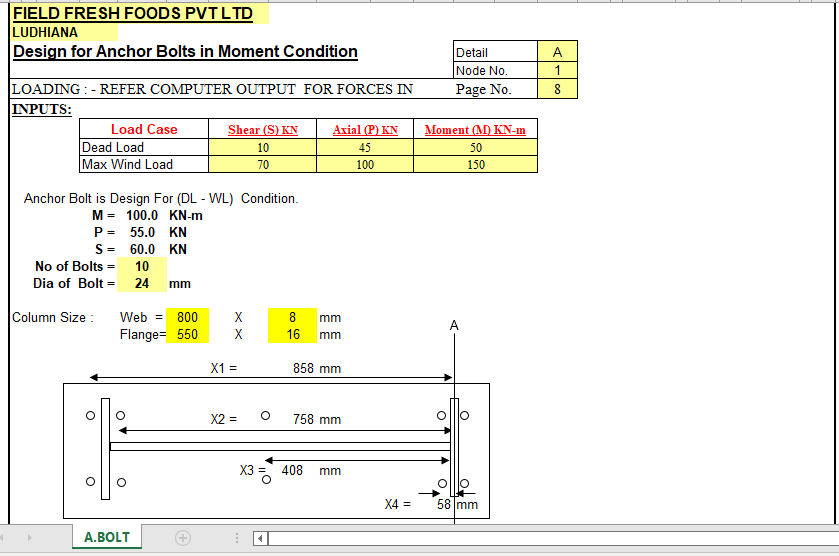Anchor bolts are one of the most critical components of many structures, and it's essential to select the right ones to ensure the integrity of the building's foundation. These fasteners prevent the movement of structural elements, like beams and columns, by holding them firmly in place. Concrete anchor bolts are particularly critical as they hold structures to the concrete surface of a foundation. In this article, we'll provide a comprehensive guide to anchor bolts, specifically concrete anchor bolts.

What are Anchor Bolts?
Anchor bolts are mechanical fasteners that secure two components together or fasten a fixture to a base, such as a wall or floor. Concrete anchor bolts are used to secure items to concrete, such as steel plates, machinery, building panels, and walls.
Types of Concrete Anchor Bolts
The three main types of concrete anchor bolts are wedge, adhesive, and mechanical bolts.
1. Wedge Anchor Bolts
Wedge anchor bolts, also known as expansion anchors, are used for heavy-duty applications. They work by expanding within the concrete hole, creating a mechanical bond that holds the bolt in place. The wedge anchor's design makes it perfect for fixing heavy machinery, structural steel columns, and masonry to concrete.
2. Adhesive Anchor Bolts
Adhesive anchor bolts, also known as chemical anchors, are designed for use in high-stress applications. They are created by filling a drilled hole with epoxy resin and inserting a threaded rod, bolt, or anchor into the hole. As the adhesive cures, it forms a strong bond, holding the fixture firmly in place. Adhesive anchors are ideal for anchoring into base materials that may not support a standard mechanical bolt.
3. Mechanical Anchor Bolts
Mechanical anchors, like the sleeve or wedge-bolt designs, rely on compression and friction to resist movement. These bolts are best suited for low to medium load applications such as wall brackets and handrails.
What Determines Anchor Bolt Load Capacity?
The load capacity of an anchor bolt depends on several factors such as the size, material, design, and installation method. The tensile strength and yield strength of the bolt and the size and depth of the hole also contribute to the load capacity. A properly installed anchor has a better load capacity than an improperly installed one.
Installation of Anchor Bolts
Proper installation is crucial to the effectiveness of anchor bolts. Some of the essential installation steps to take include:
1. Pre-Installation Inspection
Before installing any anchor bolt, a pre-installation inspection should be conducted. The inspection includes determining the correct anchor type, thickness of the material to be anchored, the thickness of the concrete surface, and the location of the anchor bolt.
2. Hole Preparation
The appropriate hole pattern should be marked for the anchor bolt. The hole should then be drilled to the proper depth and diameter.
3. Inserting the Anchor Bolt
Insert the anchor bolt into the hole, taking care to avoid cross-threading, which can compromise the strength of the bolt.
4. Tightening the Bolt
The nut must be tightened to the recommended torque, ensuring that the bolt is fully seated and that there is no gap between the fixture and the concrete surface.
Summary
Concrete anchor bolts are an important part of any construction project, and their correct selection and installation are critical. Wedge, adhesive, and mechanical are the three main types of concrete anchor bolts. The load capacity of an anchor bolt depends on several factors such as the size, material, design, and installation method. To ensure the effectiveness of anchor bolts, it's essential to follow the recommended installation methods fully. With this comprehensive guide to anchor bolts, you can now make informed decisions on what type of anchor bolt to use in your construction projects.